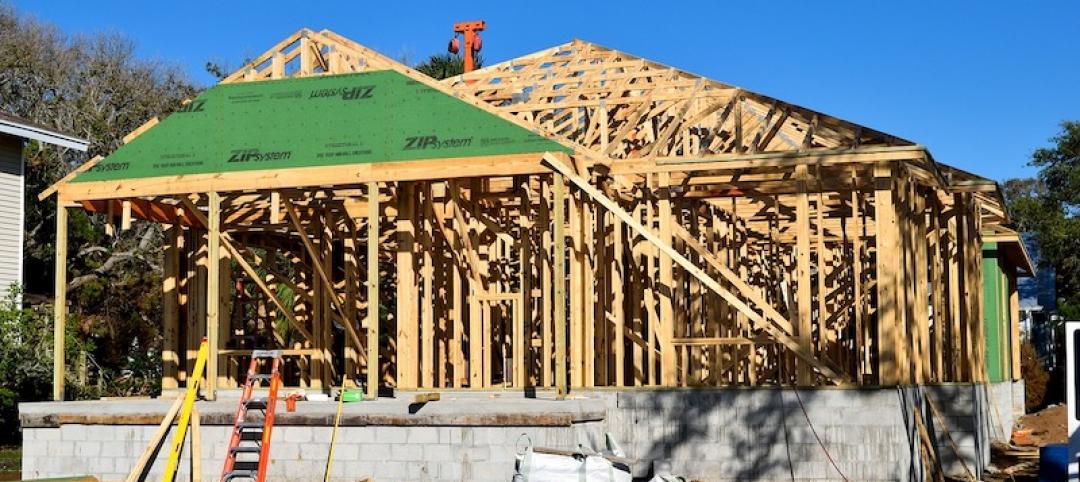On February 8, 2024, Mayor Muriel Bowser presented the Zero Waste DC Plan to the Council, outlining policies, programs, and initiatives to meet the District’s aim of reducing per capita waste generation by 15% and transitioning from a disposable culture to a circular economy. Of the 43 actions in the plan, a handful are essential for building owners and design professionals to know about now.
Overview of the Zero Waste DC Plan
In 2013, the District enacted the Sustainable DC Plan and established the ambitious goal of diverting 80% of the citywide waste stream away from landfills and incineration. For 2018, that citywide waste stream was estimated at over 1.1 million tons. Previously established guidelines from the 2019 Sustainable DC 2.0 Plan and the Zero Waste Omnibus Amendment Act of 2020 guided development of the Zero Waste DC Plan, finalized in early 2024 after years of research and public engagement. Originally, the target year to achieve 80% diversion of solid waste was 2032, but technical analysis that modeled rates of adoption, participation, and materials capture guided extension of the zero-waste target year to 2040.
What most DC residents and business owners will be talking about in the months ahead are the plan provisions for phasing out single-use plastics and other disposable items beginning next year, with a ban on throwaway plastics by 2030. Other noteworthy action items include mandatory recycling and composting, policies to increase reusable and refillable packaging, and requirements for donation of surplus food and materials.
What might not be the talk of the town – at least not right away – are some of the demands on building owners and design professionals that will impact construction projects.
Construction and Demolition
The primary objective of the Zero Waste DC Plan is articulated in “Goal 1: Reduce Per Capita Waste Generation.” Without a significant drop in waste, the plan will fail to achieve the 80% cut in the volume of material that winds up in landfills and incinerators. Of critical importance to building owners, property managers, and design professionals is Action 5 under this Goal, which calls for updating the DC Green Construction Code to require all new construction, demolition, and building retrofit projects to submit a Deconstruction Plan. Eighty percent of recoverable materials, including lumber, metal, stone, brick, and electrical and plumbing fixtures, will need to be salvaged and contributed toward the development of affordable housing. How this will be achieved is yet to be determined, but the timeframe for implementation is listed as “Medium Term,” which could be as soon as five years from now.
In the short term, Action 25 seeks to expand Extended Producer Responsibility requirements for hard-to-recycle materials, including some construction waste, such as paint, carpet, textiles, and solar panels. Upon implementation, anticipated within the next few years, disposal of covered materials in landfills or incinerators will be banned.

Recycling and Composting
Under “Goal 3: Increase Recycling and Composting Participation and Accessibility,” Action 14 calls for adoption of a universal recycling and composting ordinance that will require owners and facility managers of all commercial, institutional, governmental, and multi-family residential buildings to provide for the separation and collection of recyclable materials (e.g. plastics, glass, paper, aluminum, and cardboard), as well as compost (including food scraps and compostable containers). The plan looks to adopt this ordinance by 2025, which means facility managers should plan as soon as possible for this change in operations. Design professionals and property owners alike should consider the space requirements for sorting and collection.
To this end, Action 24 calls for revision of the DC Green Construction Code to require all new multi-family residential construction to include dedicated space for recycling and composting. By 2032, existing multi-family residential properties must be retrofitted to meet this requirement, as well.
Enforcement
Community education is a key part of the plan, from training programs for property managers on preventing food waste to hands-on learning about composting in school cafeterias. Robust enforcement, though, is also a critical component. Action 38 aims to increase the number of inspectors – and impose fines – for building owners and businesses that fail to comply. To place oversight directly into the hands of the community, Action 39 establishes a new Zero Waste Tip-Line for residents to report non-compliant commercial buildings and businesses.
Zero Waste Financial Assistance
Implementing recycling and composting collection, providing for recoverable construction waste diversion, and arranging producer recovery of hard-to-recycle materials, along with navigating operational changes to eliminate food waste and disposable products, won’t be cheap. Under “Goal 5: Build an Inclusive and Local Circular Economy,” Action 32 calls for expanding financial assistance programs – and creating new ones – particularly for small businesses, nonprofits, and institutions. Zero Waste tax credits and other incentives are also on the agenda to help owners manage these costs, with planned implementation by 2028.
Ahead of the Curve
To prepare for these changes, building owners, property managers, and design professionals should begin coordinating with suppliers and contractors to discuss implications for any upcoming construction projects. Reusing existing materials, particularly for historic buildings, may already be part of the plan for rehabilitation or restoration efforts, but newer buildings, too, should look at ways to salvage and reuse. As for composting and recycling, with demand surging over the coming months in response to the new plan, it’s a good idea to start preparing early, especially if retrofitting designated sorting and collection spaces will require building modifications.
Even if the initiatives under the Zero Waste DC Plan aren’t fully in force right away, it’s good practice to start implementing the policies now, where feasible. Early adoption will not only lead the pack on cutting down waste, but also allows time to practice new procedures at an unhurried pace before mandates force a hasty effort to comply.
This material is for informational purposes. Before taking action, consult a design professional.
Hoffmann Architects + Engineers (www.hoffarch.com) is a design professional firm specializing in the rehabilitation of building exteriors, with offices in Alexandria Va., New York, and New Haven Conn.
Related Stories
Codes and Standards | Jul 22, 2020
New version of IAPMO’s Water Demand Calculator is available
Enhanced features include selection between single- and multifamily buildings.
Codes and Standards | Jul 22, 2020
Mobile app calculates sound transmission for wood-framed assemblies
American Wood Council tool for floor-ceiling assemblies.
Codes and Standards | Jul 22, 2020
Architecture billings remain in negative territory, begin to stabilize
Fewer architecture firms report declining billings this month.
Codes and Standards | Jul 20, 2020
N.Y. construction firm to pay $1.5 million to settle sexual harassment claim
Managers said to demand sex for pay and OT opportunities.
Codes and Standards | Jul 16, 2020
Tips to make optimal use of salvaged materials
Integrated teams, staging warehouse, and looking early and often, among recommendations.
Codes and Standards | Jul 15, 2020
Georgia gives the go-ahead for tall mass timber construction
Standards review scheduled to be completed by July 2021.
Codes and Standards | Jul 15, 2020
Softwood-lumber duties boost expenses amid COVID-19 outbreak
Little hope this year for resolution of trade dispute with Canada.
Codes and Standards | Jul 14, 2020
Metal Construction Assn. releases three EPD updates
Pertain to Metal Composite Materials, Insulated Metal Panels, and Roll Formed Aluminum and Steel Cladding.
Codes and Standards | Jul 13, 2020
5 must reads for the AEC industry today: July 13, 2020
4 technologies for improving building sanitation and tech's ever-evolving impact on the multifamily space.
Codes and Standards | Jul 9, 2020
Funding opportunity for field validation of high-impact building technologies
Dept. of Energy program targets dynamic interactions with electric grid.

















